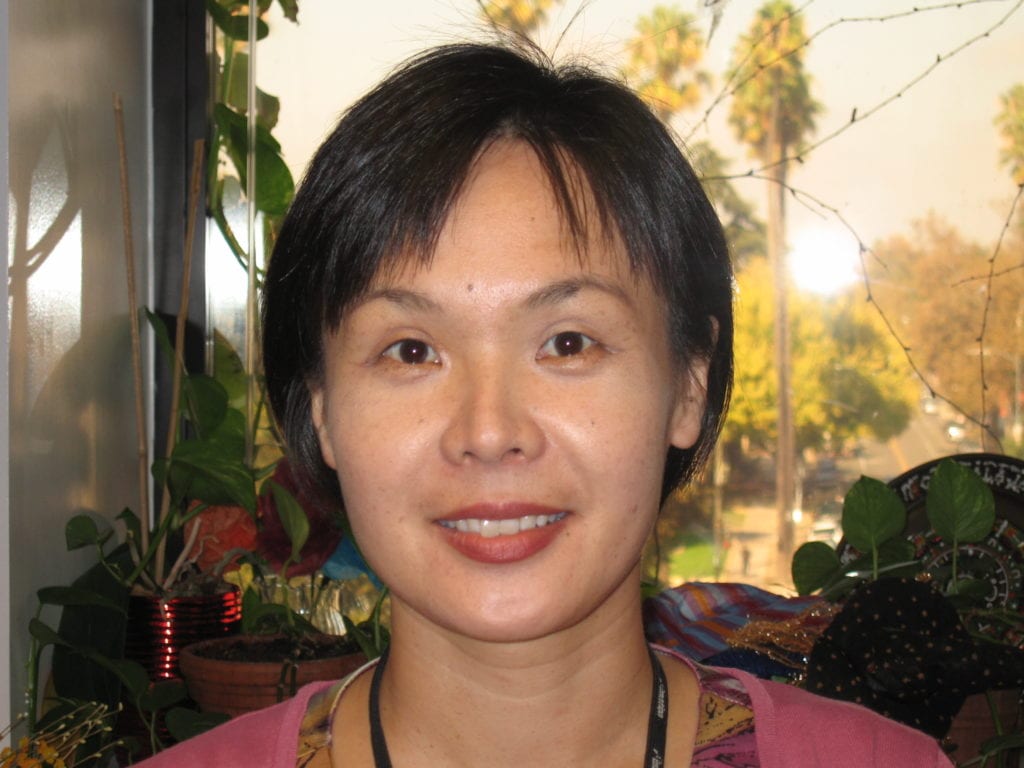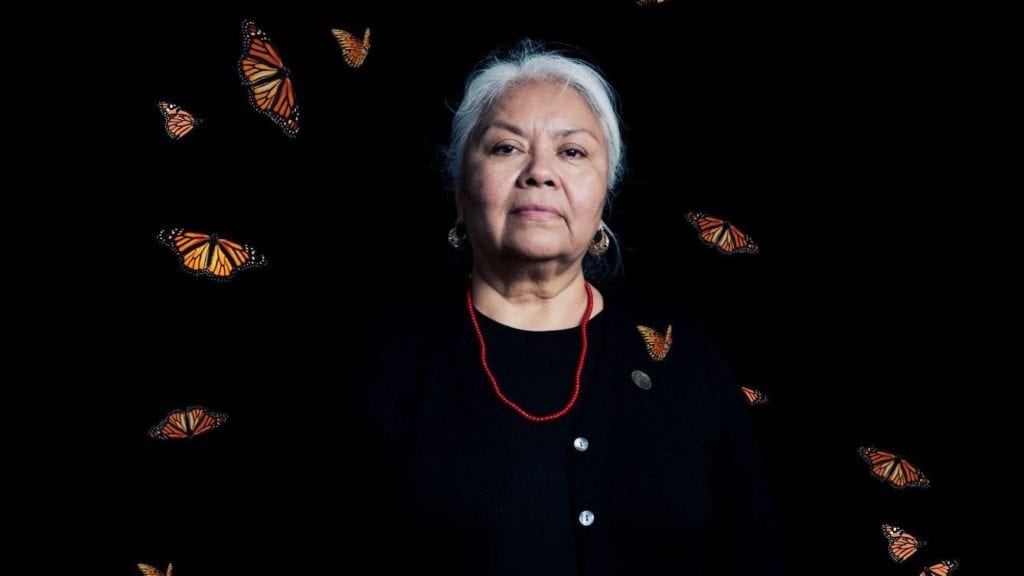Seven women of color were passed over for promotions at San Jose State University in 2019, and they’re blaming university President Mary Papazian’s leadership for it.
The women accused Papazian of discrimination against faculty of color after all of them were either denied tenure or promotion after passing through all the university’s required steps without incident during the 2018-19 school year. According to Christian Jochim, SJSU chair of the California Faculty Association Faculty Rights Committee, four of the seven women were either unanimously or strongly recommended for a promotion, while the other three were unanimously recommended by their department. All seven were eventually denied promotion.
They allege the university’s Retention, Tenure and Promotion (RTP) policy was unfair and lacked reasoning for not advancing them to the next step in their tenure process, and that Papazian rejected their applications without justification.
The faculty involved include Sang Hea Kil, a professor in the justice studies department, Julia Curry, a professor in the Chicana and Chicano studies department, and Yasue Yanai, a professor in the Japanese department.
Gwendolyn Mok, a professor in the music department, was not part of the seven women but says she was removed as coordinator of the keyboard area without warning or due process. Three other women either could not be reached for comment or asked to remain anonymous.
The seven women filed individual grievances with the California Faculty Association, the labor union that represents lecturers, professors, counselors, librarians and coaches working for the California State University system.
Mok was recommended for reinstatement by a panel of three faculty members, but Papazian rejected it.
“This shows she does not value faculty input or voices,” she said.
Papazian forwarded requests for comment to SJSU spokeswoman Robin McElhatton.
McElhatton said in a statement the university “is fully committed to retaining and promoting all faculty members who meet tenure and promotion requirements.”
In response to the allegations, the university’s academic senate released a 36-page report in April that outlined 15 recommendations to improve the RTP process.
According to the RTP policy, candidates for promotion are required to turn in a dossier that demonstrates work in three areas: teaching, committee service and research. They are evaluated by committees led by the candidate’s department, college, dean and the university RTP committee. The application is then sent to the provost, who makes the final recommendation. The president then receives all cases and issues the ultimate decision on tenure or promotion. Each step allows candidates a 10-day period where they are allowed to respond to a decision if they don’t agree with it.

Curry, Kil and Yanai allege their applications skipped the provost entirely before landing on the president’s desk, where she denied them without an adequate explanation.
Not enough research
Yanai and another candidate said they were denied in part because Papazian believed they didn’t have enough research.
Yanai, who said she received excellent student reviews, said she was denied because some of her evaluators did not read her narrative statement, which outlined why she felt some of her application materials did not meet the university’s standards. The university believed her application did not include enough research.
According to Yanai, her research “met standards” for the university.

The reason, Yanai said, that she didn’t have what Papazian considered enough research was because her department was understaffed and had no guidelines for research. Doing research on top of her work with a small staff, she said, would have been too taxing for her mental health.
“Everyone has their strengths in each area. In my case, teaching was the strongest. Committee work was also strong,” Yanai said. “In my department, there weren’t many senior faculty members, so I had to do the leading work for younger faculty members.”
Yanai said she would’ve done more research work if her department was given equal faculty release time — time that a faculty member is released from teaching to work on other projects — compared to other language departments. But because the department was understaffed and her department was given less time than other programs, such as Spanish, it was impossible.
“I’m not a robot or Superwoman,” Yanai said. “I also have two children I was raising.”
Four of the women, including Yanai and Curry, won awards for their work as professors.
“She (Papazian) wanted more emphasis on research and publication of research. Basically, she wanted them to do more research and be published,” Jochim said. “It (the research) was not a problem for most of the other evaluators — she is the one who claimed it.”
The erosion of co-governance
Sang Hea Kil, associate professor in justice studies and co-chair of the Anti-Racist, Social Justice Transformation (ARSJT), was another one of the faculty members who was denied promotion.
The Anti-Racist, Social Justice Transformation seeks to promote diversity within the union.

“Administrators aren’t our bosses, and we’re not subordinate to administrators, because we actually co-govern with administrators,” said Kil. “What this president has done is that she has eroded co-governance by implementing a chain-of-command style of leadership, which attempts to subordinate faculty to administrators.”
One example, Kil said, was the university’s refusal to allow the women to file a joint grievance, forcing them to file separate ones. They were also prohibited from claiming systemic problems in their grievances and only allowed to document individual instances.
The ARSJT issued a letter in September 2019 slamming the president’s decisions in the women’s cases. It alleged several violations by Papazian, including a failure to “hire, nurture, and promote diverse faculty.”
“This in and of itself is shocking,” the letter said. “However, even more shocking is the fact that many of these were individuals who, while contributing mightily to the University in the three pillars of the RTP process as identified when they were hired (teaching, scholarship and service), were disproportionately women of color.”
Kil said Papazian did not consider two of the women’s recommendations from the RTP process before making her final decision. In her grievance hearing, Kil attempted to poke holes in the university’s evaluation process, saying a rapist could theoretically pass the process due to its “wonkiness.”
Mok agreed.
“What (we) are particularly disturbed by is this president is ignoring the recommendations from faculty,” she said. “It’s starting to feel a lot like a kangaroo court where faculty opinions have no weight whatsoever.”
Another chance
Since the women first came forward in 2019, some were granted another year of review, allowing them to reapply for promotion or tenure.
Four of the women reapplied for the 2019-20 evaluation process, and three eventually won promotion. A fourth woman is in the process of another grievance upon not being promoted. A statutory hearing committee ruled in her favor.
Another woman of color reported she was demoted after passing all levels of her evaluation successfully and recently resigned from her position.
“While we cannot disclose nor comment on information specific to a confidential employment evaluation, SJSU provides resources, including workshops and mentoring, that is enhancing support for faculty members who pursue professional growth, with a particular focus on supporting Black, Indigenous and people of color,” McElhatton said. “We also have required training for Review, Tenure and Promotion committee members that integrates anti-bias research-based equity interventions into the assessment and evaluation process.
[optin-monster-shortcode id=”sqjhi5kvlqb6oonedadt”]
McElhatton added that the majority of faculty who were not promoted in the 2018-2019 cycle have since been promoted and the 2020-2021 cycle of candidates are under review.
Still, the seven women are unconvinced that re-evaluations and will root out the problems and discrimination they believe is rife within the university and its practices among faculty of color.
“The practices by this administration against women of color in the promotion and tenure process as well as how women of color are treated in the faculty hearing committee process over statutory grievances — Gwendolyn Mok, as an example, me as an example — really shows that this president has a woman of color problem,” said Kil.
Mok and Curry, meanwhile, say they have been most frustrated at the lack of “shared governance” from the president. They believe if Papazian is allowed to disregard the entire RTP process, the system is inherently biased in her administration’s favor.

For Curry, who had published research and won awards before being rejected, it was something she had been wrestling with even before she was turned down for promotion.
“When the chancellor (of the CSU system, Timothy P. White) called me on Dec. 14, 2018, to say that I had gotten the (Wang Family Excellence) Award, I thought it was a joke,” Curry said. “It was the happiest day of my academic career. But at the awards ceremony, President Papazian did not acknowledge me like other presidents did their campus recipients. Maybe I should’ve seen the writing on the wall.”
Contact Lloyd Alaban at [email protected] or on Twitter @lloydalaban.
Editor’s Note: Gwendolyn Mok was denied reinstatement as coordinator of the keyboard area, not denied a promotion.



Leave a Reply
You must be logged in to post a comment.